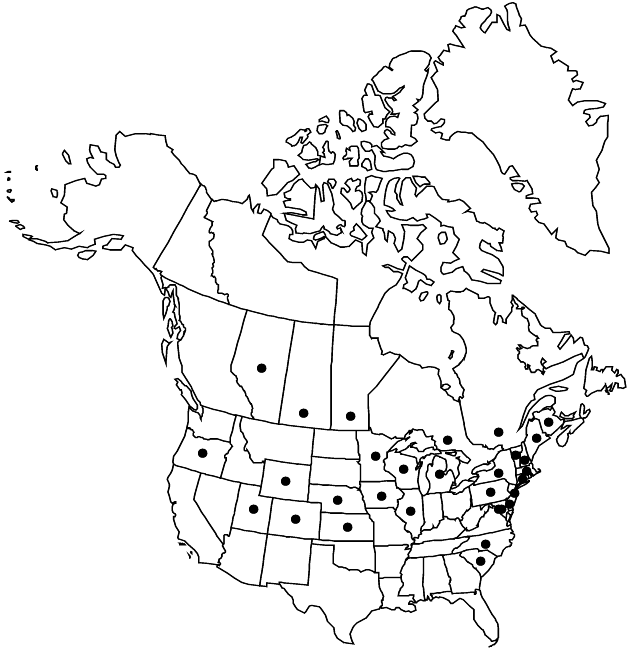Difference between revisions of "Artemisia abrotanum"
Sp. Pl. 2: 845. 1753.
imported>Volume Importer |
imported>Volume Importer |
||
| Line 53: | Line 53: | ||
|publication year=1753 | |publication year=1753 | ||
|special status=Introduced | |special status=Introduced | ||
| − | |source xml=https:// | + | |source xml=https://bitbucket.org/aafc-mbb/fna-data-curation/src/2e0870ddd59836b60bcf96646a41e87ea5a5943a/coarse_grained_fna_xml/V19-20-21/V19_891.xml |
|tribe=Asteraceae tribe Anthemideae | |tribe=Asteraceae tribe Anthemideae | ||
|genus=Artemisia | |genus=Artemisia | ||
Latest revision as of 20:57, 5 November 2020
Perennials or subshrubs, 50–130(–170) cm (not cespitose), aromatic (roots thick, woody). Stems relatively numerous, erect, brown, branched, (woody, brittle), glabrous or sparsely hairy. Leaves cauline, dark green; blades broadly ovate, (2–)3–6 × 0.02–0.15 cm, 2–3-pinnatifid (lobes linear or filiform), faces sparsely hairy (abaxial) or glabrous (adaxial). Heads (nodding at maturity) in open, widely branched arrays 10–30 × 2–10 cm. Involucres ovoid, (1–)2–3.5 × (1–)2–2.5 mm. Phyllaries oblong-elliptic, sparsely hairy. Florets: pistillate 4–8(–15); bisexual 14–16(–20); corollas yellow, 0.5–1 mm, glandular. Cypselae (light brown) ellipsoid (2–5-angled, flattened, furrowed), 0.5–1 mm, glabrous. 2n = 18.
Phenology: Flowering late summer–fall.
Habitat: Waste places
Elevation: 0–3000 m
Distribution

Introduced; Alta., Man., N.B., Ont., Que., Sask., Colo., Conn., Del., D.C., Ill., Iowa, Kans., Maine, Md., Mass., Mich., Minn., Nebr., N.H., N.J., N.Y., N.C., Oreg., Pa., S.C., Utah, Vt., Wis., Wyo., Eurasia, Africa.
Discussion
Artemisia abrotanum has been widely cultivated in gardens for old-time uses such as a fly and parasite repellent. It has had a renewed popularity in xeriscape gardening; it is drought tolerant and can fill difficult garden spaces (e.g., dry rocky slopes). Reports of naturalization may be exaggerated; it is not known to become weedy in any of its known locations in North America.
Selected References
None.